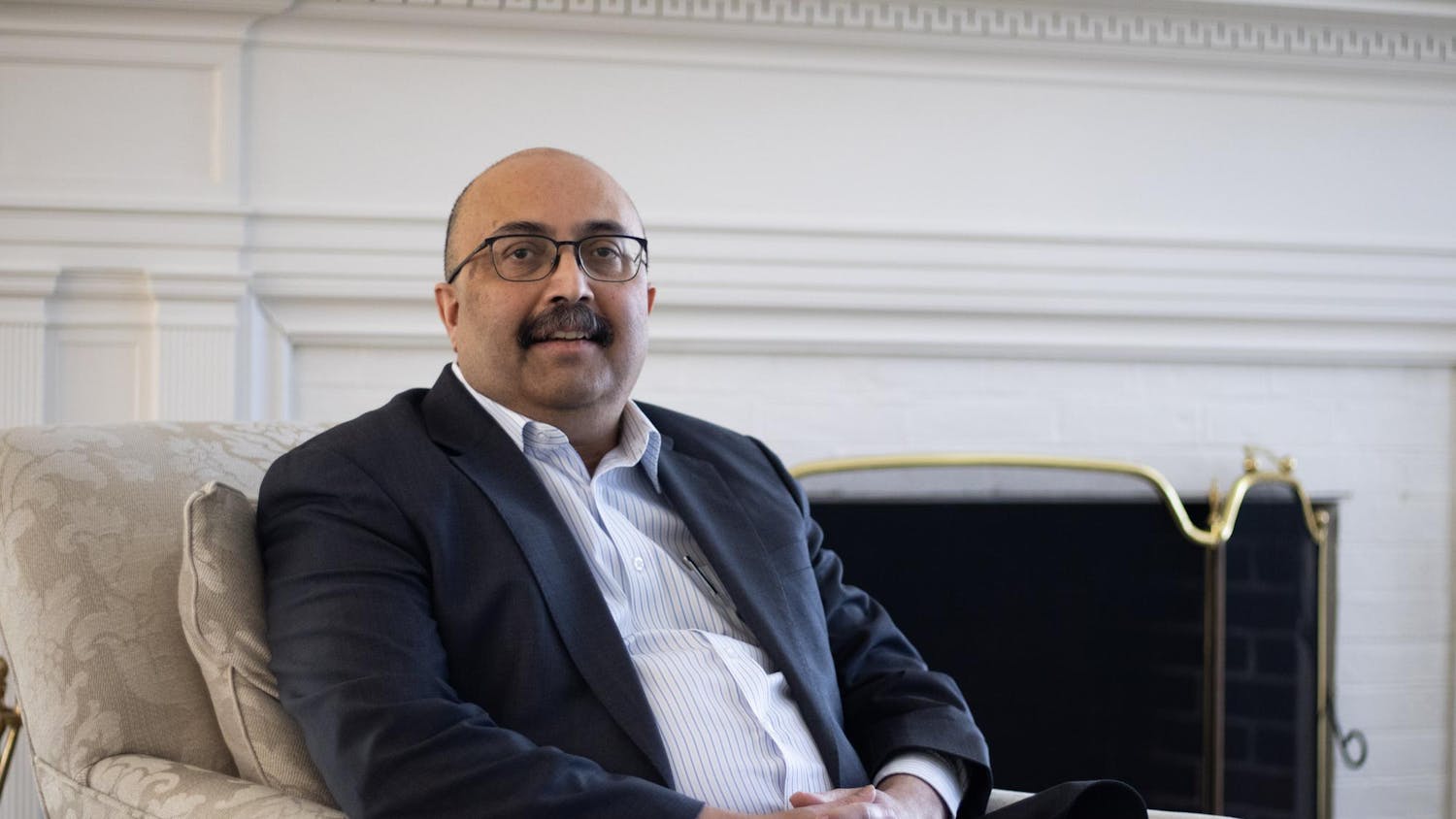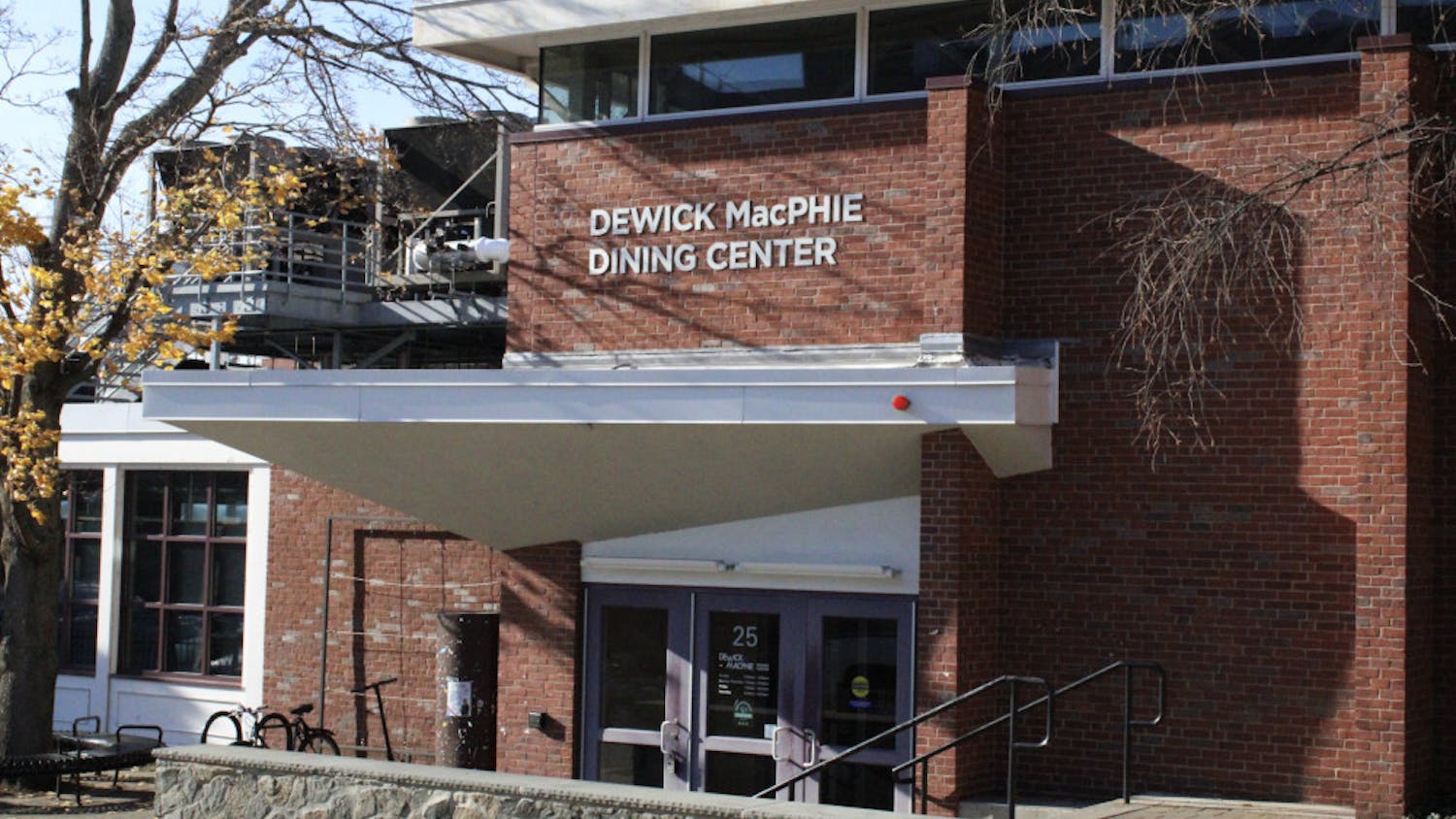The Environmental Studies Program is hosting a university-wide event on genetically modified organisms (GMOs) entitled "Future Food: Eco-friendly GMOs” in collaboration with the Community Health Program and the International Relations Program with support from the Office of the Provost this Thursday from 6:30-8:00 p.m. in Eaton 201.
The event will be led by Professor and Foreign Associate of the National Academy of Sciences John A. Pickett from Rothamsted Research in the United Kingdom. Pickett will speak on the topic of genetically modified crops as a tool to increase productivity and sustainability in food production systems, according to the event's Facebook page.
Because there are several different tracks in the Environmental Studies Program, Program Director Colin Orians believes the program should bring in speakers to expose students to a wide range of topics in environmental studies, both for students exploring different careers and for those on campus who are curious about topics such as food production.
“Everyone is very interested in the food they put in their mouths, where it comes from and how it is produced,” Orians said.
According to Director of the Community Health Program Jennifer Allen, an associate professor of public health and community medicine, the topic of GMOs is a very controversial issue, which is why these programs wanted to bring the topic to campus for discussion.
“We wanted to think about how we might think about this as a one-health issue and bring that to campus," she said. "How do the ways that we produce and distribute food influence the environment, and how does that influence human and animal health?”
The Environmental Studies Program has brought in different guest lecturers to talk about GMOs, but Orians said he believes that Pickett will present a unique viewpoint on the subject.
“John Pickett has a fairly nuanced view of GMOs. He sees a role for them and he also sees a role for really good science and ecology,” Orians said. "We thought it would just be a phenomenal perspective.”
Pickett will discuss moving away from the traditional use of wide-spectrum pesticides to more precise control through compounds targeted against specific pests, according to the event's Facebook page.
“[Pickett is] someone who thinks about ecological systems not as a sterile system, but as one where you want to promote ecology and one where you may want to bring in technology to protect crops,” Orians said.
In addition to the community health aspects of the event, international relations also plays a key role in our food system, Allen said. Orians emphasized the importance of finding effective pest control systems in developing countries around the world.
“It isn’t just a United States problem, it's global. It’s farmers in developing nations trying to grow cassava, papayas and bananas, but are having problems controlling pests,” Orians said.
According to Sara Gomez, a post-doctoral researcher in the Orians Lab, the topic of GMOs and transgenic crops is very difficult in the context of international cooperation.
“This is a very complex issue, but perhaps the most obvious aspect is the fact that countries have very different perceptions and legislation regarding transgenic crops, which can raise problems in terms of export if some countries, like those in the European Union, oppose the consumption of transgenic crops,” she said.
The issue of GMOs is timely and important, according to Orians.
“Genetic modification [(GM)] is not a uniform thing. There are GMs that I am not excited about, and there are other GMs where there is a potential to have that be a pretty useful technology," he said. "There is going to have to be constant change because insects are going to evolve, pathogens are going to evolve and climates are going to change, so we’re never going to be able to say, ‘Oh, we’re done.'"
Gomez stressed that while the points covered in the discussion will be controversial, people should come to the event in order to engage with those points.
“Given the widespread adoption of transgenic crops in the U.S., I would like that those who don't know about this technology take the opportunity to learn more about it by coming to the event and those who oppose it come with an open mind to discuss a technology that has great potential to help reducing food insecurity,” she said.
More from The Tufts Daily
Q&A: President Kumar discusses Beyond 175 plan
By
Julian Glickman and Josué Pérez
| February 2
TCU Senate implements new dining feedback survey
By
Alex Boyle and Dariush Raissi
| February 2





